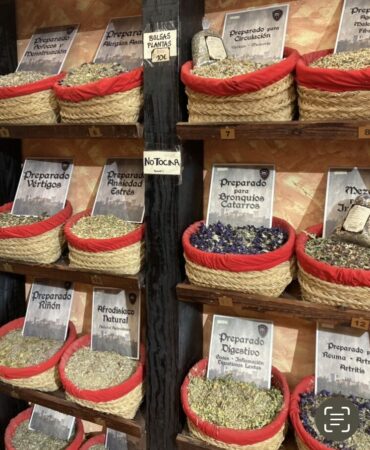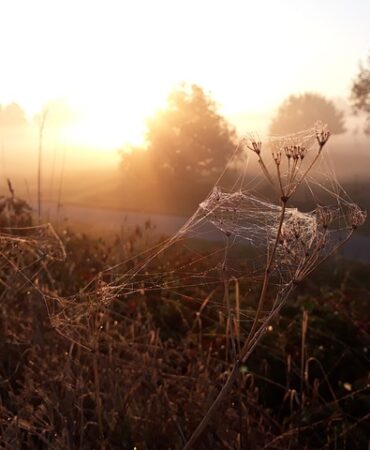Currently Empty: £0.00

Snake oil and potions: convincing the herbal doubters
Words by Neil Allies
I spend many happy hours falling down herbal rabbit holes as part of my herbal medicine studies, and my bookshelf is getting increasingly heavy with new purchases! A good example is an essay I recently wrote about salicylates, compounds found in some plants that have anti-inflammatory and pain killing effects in humans. Indeed, they’re the origin of aspirin, which was first made in the 19th century using extracts from Meadowsweet (Filipendula ulmaria, whose older name was Spirea ulmaria). Writing that essay led me to read all about different aspects of botany, medicine, folklore, science, and do some tea tasting. I think herbalists are so lucky that we have so many fascinating and inter-connected aspects to what we do, and there is always so much to learn about.
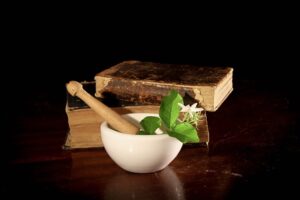
King Charles’ homeopath
Around the same time as finishing my essay, an article was published in a newspaper about King Charles’ use of homeopathy that will no doubt raise a lot of herbalists’ eyebrows because of its wider statements about non-allopathic medicine (written by Martha Gill, “King Charles has appointed a homeopath. Why do the elite put their faith in snake oil?. People can make up their own mind about what is said in the article but, for me, the first paragraph in particular struck a chord:
“When I hear someone extolling the virtues of homeopathy, I am often reminded of a quotation from the TV show 30 Rock. “There are many kinds of intelligence,” Jack Donaghy tells a particularly stupid employee. “Practical, emotional … and then there is actual intelligence, which is what I’m talking about.” Similar, and perhaps correlating, are the many kinds of medicine. Natural, complementary, alternative, homeopathic, herbal, traditional. And then there is actual medicine, which works”.
“Actual medicine, which works” is an interesting statement. I had just spent hours researching and writing an essay about how a certain group of plant compounds had been clinically shown to interact beneficially with human biochemistry, and this had led to the creation of tablets that are now used all over the world as part of established health care. Therefore, the insinuation that herbal medicine (seemingly lumped in with all non-allopathic medicine) ‘doesn’t work’ made me scratch my head. Of course, herbalists will not need convincing that herbal medicine works and each one will no doubt have their own stories about its successes. Certainly, amongst the herbal medicine students I talk to, stories abound of how the impact of herbal medicine in our own lives is often the start of our own journey into training. Yet, when I tell some people about my studies, I am sometimes met with a roll of the eyes or a smirk and a comment about ‘brewing potions’.
Plants can be harmful
In a conversation with a herbalist a few months ago, we talked about how no-one ever disputes the toxicity of plants. Everyone knows that some plants can be harmful and even kill. Yet it becomes too much of a stretch to acknowledge that, if plants can in some cases interact dangerously with our biochemistry, then, perhaps, they can in other cases also interact beneficially. Sometimes I talk to my friends and family about what I call the ‘Herbal Rule of Return’. What I mean by that is, the more herbal medicine I give out, the more stories I have about its successes. To illustrate this with a few examples from the last couple of years from myself, friends and family: a dental abscess treated with Myrrh and Marigold, that left the dentist puzzled because it ‘should be so much worse than it is’; sores on a cat treated with Plantain, that hadn’t healed with conventional allopathic treatments; the severity of Raynaud’s symptoms reduced using a long-term mix of Yarrow, Linden and Hawthorn; arthritic pain in hands being significantly reduced using a topical application of Rosemary, Wintergreen and Daisy. Not to mention the more common uses of herbal medicine for colds, flu, cuts and bruises that have brought so much comfort to me and others. I cannot count the amount of times I’ve heard lines like “I didn’t think it would work, but….” Or “I’m not sure what happened, but it all seems healed now…”.
Champions of herbal medicine have a repertoire of responses to anyone questioning its validity. Apart from the thousands of years of documented use of plants and the associated experience of their impact, there is the oft-cited WHO statistic that 80% of the world still rely on traditional medicine today. For those who question the lack of evidence, it is easy to explain the sparsity of large-scale clinical trials for herbal medicine by the challenging political and economic contexts it often faces. Nevertheless, it would still be possible to reference an infinite number of clinical trials where herbal medicine proved effective across a huge range of pathologies. An even better response is that some herbal treatments are used in an allopathic context. To take a couple of examples, the NHS recommends Peppermint oil to treat IBS and this NHS booklet recommends Cranberry juice to treat UTI’s because “there is evidence that they reduce the risk of UTI”
For me, the response for anyone that questions the validity of herbal medicine is to strip it back to two fundamental questions – first, do you believe that plants interact chemically with humans? Second, if yes, is there any potential that this interaction could be beneficial? The answer to the first question is, beyond doubt, yes. The second question is perhaps best answered by the (enormous!) list of allopathic drug names that “work”, that were originally derived from plants. To name just a few: Digoxin (from Foxgloves), Aescin (from Horse chestnut), Atropine (from Bella Donna), Berberine (from Barberry), Ephedrine (from Ephedra), Hydrastine (from Goldenseal), Silymarin (from Milk Thistle), Thymol (from Thyme). A fuller list can be found here.
Herbal medicine and allopathic medicine
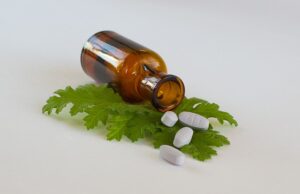
Herbal medicine isn’t allopathic medicine and, in my experience as a trainee medical herbalist, neither are they in competition with each other. No qualified medical herbalist would ever tell a patient to discontinue allopathic care if it would impact their health negatively and, on my course, we are continuously trained in ‘red flags’, where patients would be urged to go to a GP. In fact, every herbalist I’ve ever spoken to about the issue would love a closer relationship with the allopathic health system to improve patient care.
It would be disingenuous to create too much of a false divide between herbal and allopathic medicine, especially since it is only recently in medical history that the allopathic medical profession has become seen as so distinct from its herbal counterpart. For example, just over a century ago (and so, perhaps, four or five generations of doctors), the 1914 British Pharmacopeia (freely available on-line) was replete with herbal products, and reads in many places more like a herbal Materia Medica. In reality, herbal and allopathic medicine actually make pretty good bedfellows! To take just one example, my latest assignment is all about cardiovascular disease, a very serious global health issue. Fatty plaques, formed by lipoproteins in blood vessels, cause problems such as high blood pressure and increase the risk of strokes and heart attacks. Allopathic medicine first and foremost recognises that a holistic approach is best – the NHS recommends dietary changes and exercise above all else in preventing cardiovascular disease. This is exactly what a herbalist would say, too! If medication is required, patients are often given statins which, in high-density doses, can reduce the level of lipoproteins in the blood by up to 60%.
Herbalists can turn to phytosterols, a compound found in plants such as Nettle root, Saw palmetto and Milky Oat seeds. A scientific paper on phytosterols I’ve been reading for my assignment found that an intake of 2 grams a day of plant sterols reduces lipoprotein density by 8-10% (C. Cabral & M. Klein (2017) Phytosterols in the Treatment of Hypercholesterolemia and Prevention of Cardiovascular Diseases, in The Journal of the Brazilian Society of Cardiology, vol. 109. Clearly, high doses of statins are more effective at reducing lipoprotein levels, but herbal treatment could be used helpfully alongside allopathic treatment, or prophylactically in patients at risk of cardiovascular disease. Indeed, the European Atherosclerosis Association formally recommends the inclusion of phytosterols in a patient’s diet to improve therapeutic outcomes.
Of course, herbal medicine is truly holistic and any treatment would go much deeper. For example, in the same treatment plan, a herbalist might also include herbs for associated issues such as vascular health, stress or anxiety. All of this would be delivered by a herbal clinician who had studied herb-medicine interactions, and who was also trained in nutrition, clinical skills and biochemistry. To my mind, this makes herbal treatment an extremely useful ally to the allopathic approach!
Herbal medicine is, as one of my tutors called it, the world’s ‘longest running clinical trial’. It draws on tens of thousands of years of human experience and, by scientists studying the interaction of plants on human health, they have been enormously influential in the creation of modern medical products. I’ll continue enjoying exploring the herbal rabbit holes knowing that, with each one, my understanding of how and why herbal medicine works becomes ever better and, most importantly, I can use that knowledge to help others (and hopefully change some minds in the process!).

